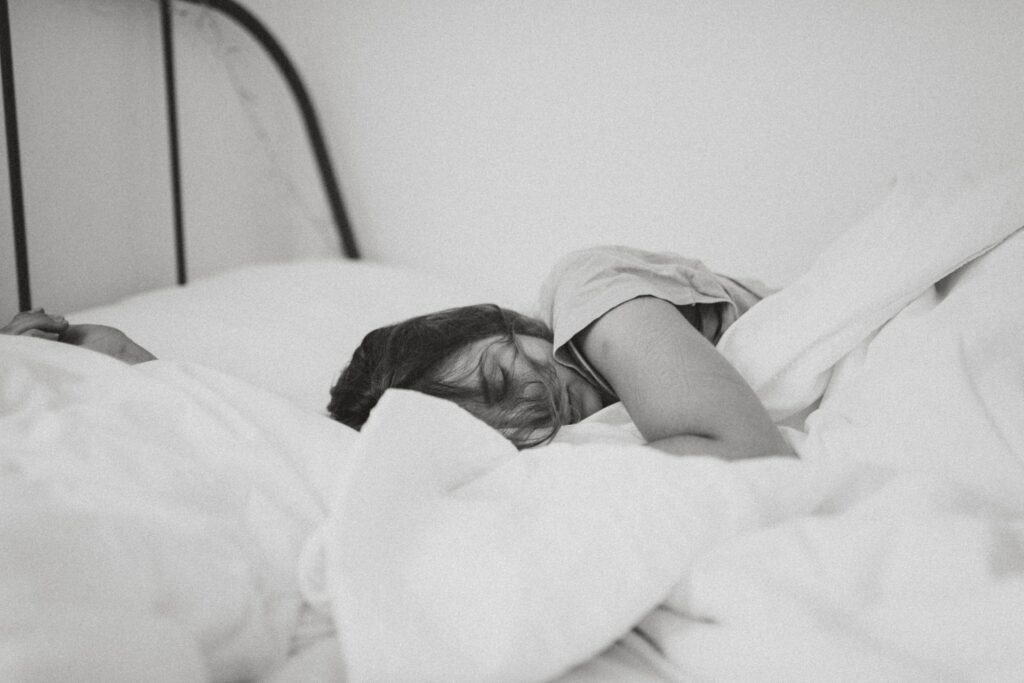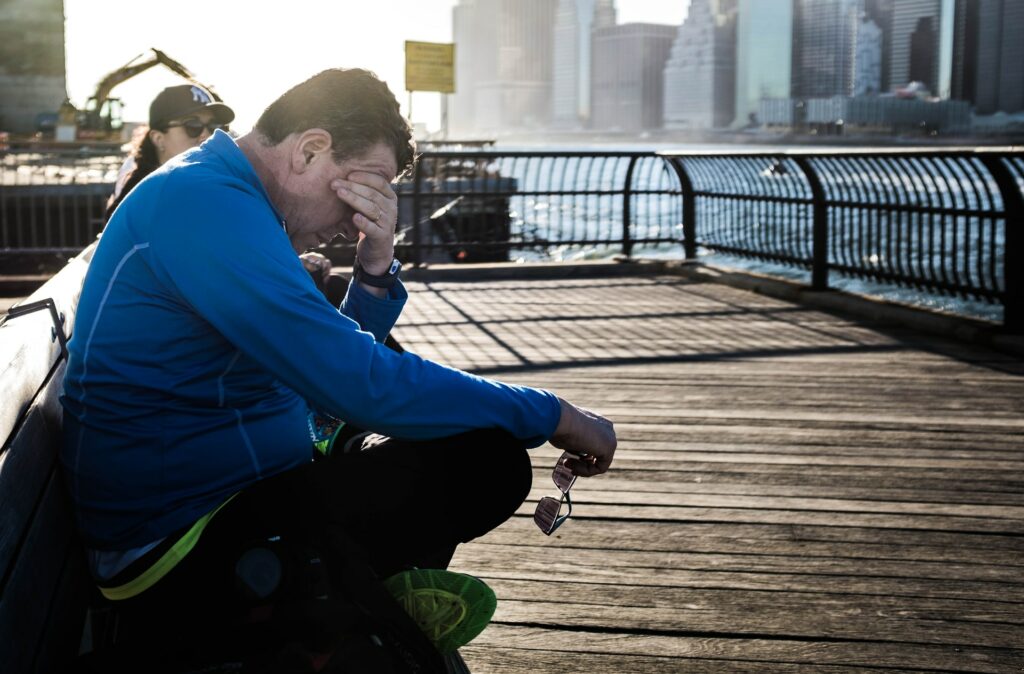How Much Sleep Do I Need?
Finding yourself lying awake at night unable to sleep can be a frustrating experience. Experiencing sleep deprivation night in, night out, with no idea how to improve can make you feel hopeless and lost. With the correct approach, you can train yourself to fall asleep within a matter of minutes, as long as a strict sleep hygiene plan is followed.
There are numerous different options you can use to try and fall asleep quicker at night, including sleep meditation, sleep music, and even sleeping pills. The ultimate goal of all of these options is relaxation.
The recommended amount of sleep differs depending on your age group. All the way from new-born; infant, toddler, preschool, school-age, teen, young adult, adult, and older adult all have different recommended hours of sleep. However, everyone is different and the amount of hours will change depending on the person. These recommendations are generally broad and all encompassing.
- New-born
- 14-17 hours
- Infant
- 12-15 hours
- Toddler
- 11-14 hours
- Preschool
- 10-13 hours
- School-age
- 9-11 hours
- Teen
- Changes to the circadian rhythm means it can be hard for teens to fall asleep sometimes.
- 8-10 hours
- Young Adult
- 7-9 hours
- Adult
- 7-9 hours
- Older Adult
- 7-8 hours
You can use a simple sleep calculator to calculate the correct time you should be going to bed, depending on the time you need to wake up. The majority of people will take about 14 minutes to fall asleep and is factored into your bedtime by the sleep calculator.
By counting in sleep cycles, the sleep calculator works out the ideal time. Each of these cycles last roughly 90 minutes and you should have 5 or 6 of them each night. You may have heard them referenced as REM sleep. Waking up during a REM sleep cycle can leave you feeling grumpy and tired. Awaking in-between phases will help you start the day.

What you should do if you can’t sleep
Good sleep hygiene is imperative for a good night’s rest. Training the body it’s time for sleep doesn’t have to be a long process. Activities that can signal the body it’s time for sleep include going to bed at the same time each night, shutting down any technology, and keeping your room pitch black during the night.
One of the first steps you can take for increasing sleep quality and length is reducing anxiety. Anxiety can produce racing thoughts and constantly keeps your mind engaged instead of shutting down. As you close your eyes, picture a relaxing scene and focus on it for a while.
There are items you can use to help sleep. Earplugs for sleeping are an easy, affordable, and effective way to block out sounds that could interfere with your sleep. They are designed to fit inside the ear canal by compressing for insertion and then expanding once in place. Earplugs for sleeping can be purchased from a wide variety of different retailers. All sorts of different sizes, materials and shapes are available.
Music is a powerful art form. From a young age, parents have used lullabies and gentle rhythms to help babies fall asleep. Science has concluded that children listening to sleep music will sleep better after listening to soothing melodies and lullabies. Luckily, it’s not only children that benefit from sleep music. In a study, adults listening to music 45 minutes before sleep reported having better sleep quality beginning on the very first night.
Another quick tip is to try and get up for a short time. Simply walking and moving round, or a repetitive task such as reading can make you feel relaxed and drowsy. Keep the lights dim and go back to bed once you start to feel sleepy. Lastly, try and avoid bright lights. Brightly lit screens can trick your brain into thinking it’s time to wake up or stay awake. Anything that ultimately stimulates the brain, from a TV show to a video game, can kick the body into wake-up mode.
Sleeping techniques and treatment
Medication
In some severe cases, doctors will prescribe drugs and sleeping tablets for the treatment of insomnia. Insomnia is a common sleep disorder that makes it difficult to fall asleep, stay asleep, or cause you to wake up too early.
Some of the sleeping tablets and medications include:
- Antidepressants: Sleeplessness and anxiety can be treat with drugs such as Trazodone.
- Doxepine (Silenor): By blocking histamine receptors this drug helps people who struggle staying asleep.
- Zaleplon (Sonata): Sonata stays active in the body for the shortest amount of time when compared to all the newer sleeping pills. This means you can first try and get to sleep without any help. Then if you’re still awake, you can take one knowing you won’t feel drowsy in the morning.
- Over the counter sleeping pills: Although no evidence of antihistamines working for insomnia, most over the counter sleeping tablets are antihistamines.
Meditation
For many people, their sleeping difficulties stem from stress. Stress increases anxiety and tension, making it difficult to fall asleep.
Sleep meditation and mindfulness is centred on the idea of slow and steady breathing. It has been known to decrease insomnia by reducing anxiety and rumination (deep thoughts). When done before bedtime, sleep meditation promotes overall calmness and reinforces positive thoughts.
According to researchers, mediation can:
- Increases the production of the sleep hormone called melatonin.
- Increases serotonin, the precursor of melatonin.
- Reduces heart rate.
- Decreases blood pressure.
- Activates parts of the brain responsible for sleep.
Sleep meditation can be done anywhere, anytime. No fancy tools or equipment are needed. The only thing you need is a couple of spare minutes to yourself.
Basic steps of meditation include:
- Find a quiet place, all to yourself.
- Sit or lie down. Lying down is preferable at bedtime.
- Close your eyes and breathe slowly. Focus on breathing. Inhale and exhale deeply.
- Ignore any thoughts that appear, focus entirely on your breathing.
Sleep Apnea
Sleep apnea is a condition that causes abnormal breathing during sleep. People with sleep apnoea will have multiple extended pauses in breath when they sleep. This affects the body’s supply of oxygen, leading to lower-quality sleep and possibly serious health consequences.
Symptoms of sleep apnea include (usually confirmed during a sleep exam)
- Breathing stopping and starting
- Loud snoring
- Making gasping, snorting or choking noises
- Waking up a lot
Although not always treated, people who need treatment use something called a CPAP machine. A CPAP machine will gently pump air into a sleep mask you wear over the mouth or nose when sleeping.
A CPAP machine can help:
- Improve breathing whilst asleep by stopping the airways getting too narrow.
- You feel less tired and improve the quality of your sleep.
- Reduces the chances of experiencing problems linked to sleep apnea, such as high blood pressure.
Using the sleep mask at first will feel uncomfortable and weird, but overtime you’ll become used to it. It works best if it’s used every night.
Eye Mask
Eye mask sleep item can be used to help block out light and are a way to improve sleeping conditions without purchasing medicinal aid. When choosing an eye mask sleep item, it’s important to consider how well it will cover the eyes, comfort, and its ability to stay in position when asleep. Some of the best eye mask sleep products will leave a space around the eye area, while still keeping you in total darkness. They will also allow you to full open your eyes without the need of taking the mask off.
Sleep deprivation
Sleep deprivation occurs when the body doesn’t get the recommended 7 to 9 hours of sleep for more than the one off night. The long-term effects of sleep deprivation are real and can have a serious effect on your quality of life.
It drains the brains mental abilities and puts your physical health at serious risk. Weight gain and a weakened immune system have been linked to poor sleep hygiene, as well as a whole host of other different physical and mental changes.
Notable signs of sleep deprivation include:
- Excessive sleepiness
- Frequent yawning
- Irritability
- Daytime fatigue
If you’ve ever experienced sleep paralysis you’ll know it’s kind of terrifying and will never want to experience it again. People with severe sleep deprivation report increases is sleep paralysis episodes.
Typical symptoms of sleep paralysis include:
- Awake but cannot move, speak or open your eyes
- Like someone is in your room
- Like someone is pushing you down
- Frightened













